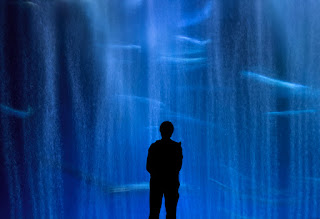"Nearly a hundred thousand million stars are turning in the circle of the Milky Way, and long ago other races on the worlds of other suns must have scaled and passed the heights that we have reached. Think of such civilizations, far back in time against the fading afterglow of Creation, masters of a universe so young that life as yet had come only to a handful of worlds. Theirs would have been a loneliness we cannot imagine, the loneliness of gods looking out across infinity and finding none to share their thoughts.
...
Here, in the distant future,
would be intelligence.
would be intelligence.
...
So they left a sentinel,
one of millions they have
scattered throughout the Universe,
watching over all worlds with
the promise of life. It was
a beacon that down the ages
has been patiently signaling the
fact that no one had discovered it."
one of millions they have
scattered throughout the Universe,
watching over all worlds with
the promise of life. It was
a beacon that down the ages
has been patiently signaling the
fact that no one had discovered it."
- Arthur C. Clarke (1917 - 2008)





